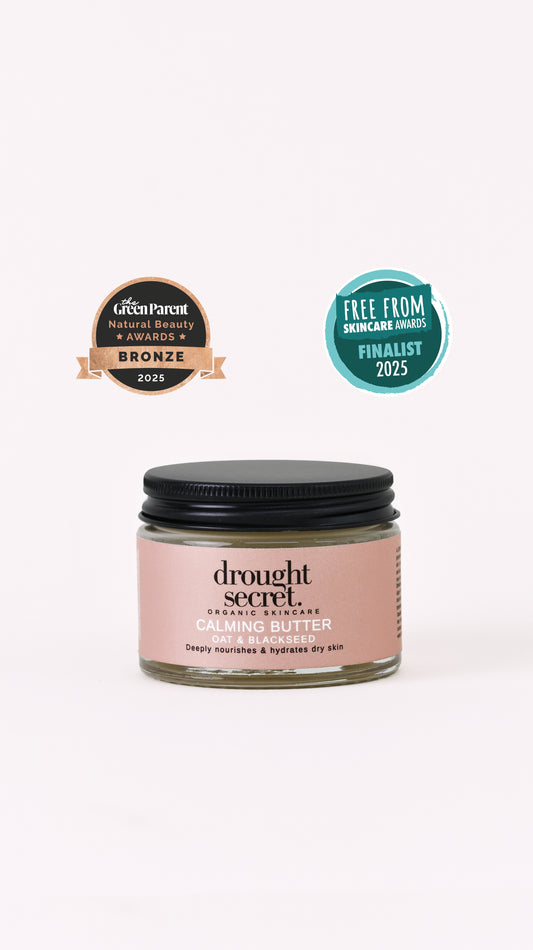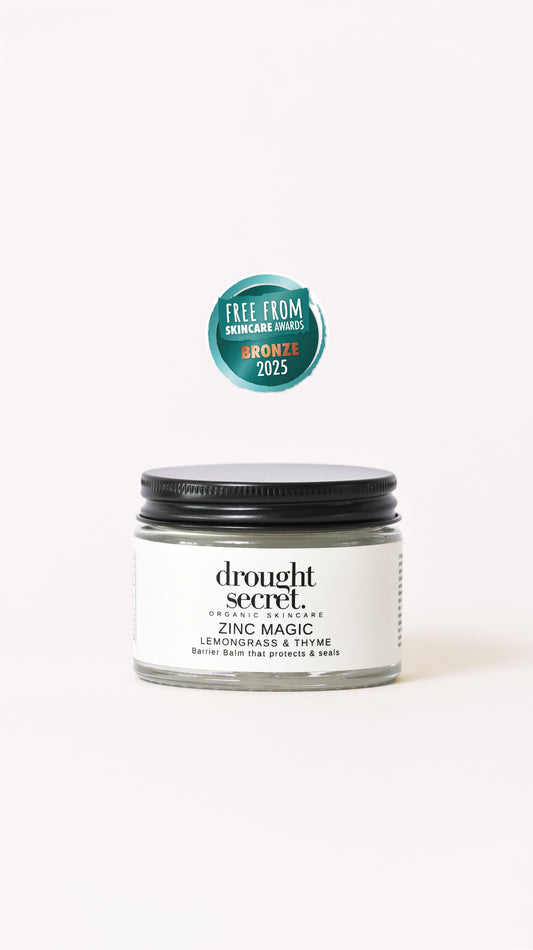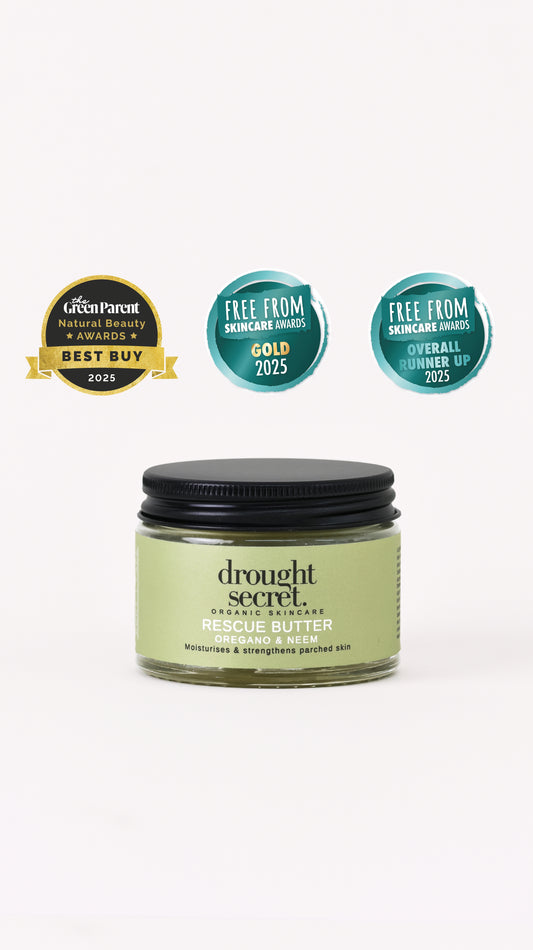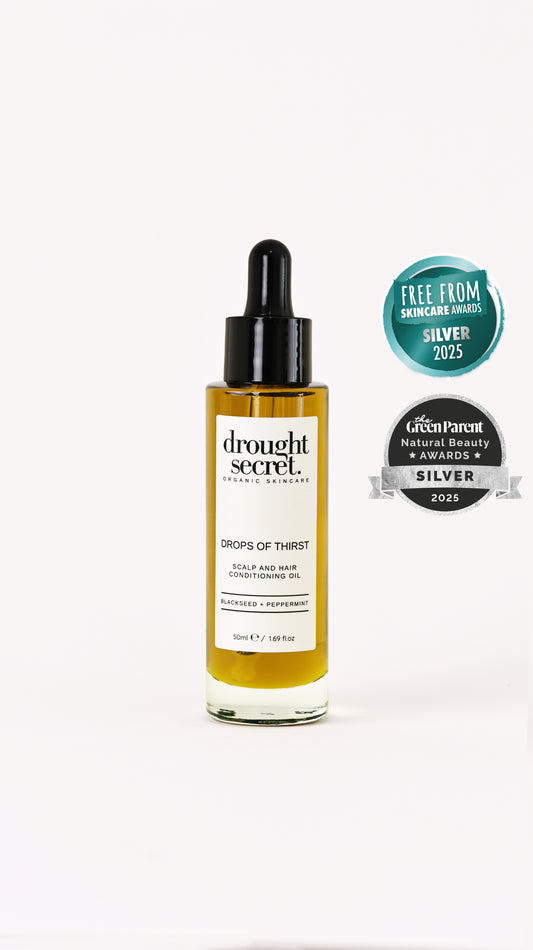You wake up in the morning and head to the mirror, expecting the usual grogginess and maybe puffy eyes, but instead, you find red, flaky, irritated eyelids staring back at you as a result of your eczema. They are itchy, sore, and a little swollen. Makeup only makes it worse, and washing your face stings like crazy. If this sounds familiar, you are someone dealing with eczema on your eyelids. Eyelid eczema is real, frustrating, and often overlooked, and the best eye cream for eczema on eyelids can be the answer to reduce the pain and irritation.
The skin around the eyes is already the thinnest and most delicate on the entire body, and when you add inflammation, dryness, and itchiness to the mix due to your eczema, it becomes a recipe for endless discomfort. That’s where eye cream for eyelid eczema comes into the big picture.
Let’s talk about how you can reclaim comfort, restore calm to your skin, and stop hiding behind glasses or makeup just to feel confident again.
What Is Eyelid Eczema?
Eczema or atopic dermatitis is a chronic skin condition that causes inflammation, redness, dryness, and itching. When it shows up on your eyelids, it can be particularly tricky, and you might notice:
- Flaky, scaly patches on or around your eyelids
- Swelling or puffiness
- Burning or stinging sensations
- Extreme sensitivity to cosmetics or even water
- Cracks or peeling in the folds of your eyelid skin
The causes of eczema tend to vary. According to the National Eczema Association, over 16.5 million adults in the U.S. have atopic dermatitis, and more than 10% of them experience symptoms around the eyes. For some, it’s allergens or irritants (like dust mites, pet dander, or harsh skincare). For others, stress, weather changes, or certain foods can trigger it. If you already have eczema or other allergic conditions, such as asthma or hay fever, you are more likely to develop it around the eyes.
Why Regular Eye Creams Are Not Enough?
A fancy anti-aging eye cream won’t fix eczema; in fact, it might make things worse. Many mainstream creams contain fragrances, alcohol, preservatives, or active ingredients (like retinol or vitamin C) that are too harsh for inflamed, sensitive eyelid skin. You need the best eye cream for eczema on eyelids that checks these boxes:
- Hypoallergenic
- Fragrance-free
- Dermatologist-tested for sensitive skin
- Moisturizing without clogging pores
- Anti-inflammatory and soothing
This is why choosing a specialized eyelid eczema relief cream is not a luxury; it’s a necessity.
What Makes an Eye Cream Eczema-Safe?
Here’s what to look for when you are selecting an eye cream that actually helps your eczema instead of aggravating it.
- Colloidal Oatmeal: A natural powerhouse, colloidal oatmeal is rich in beta-glucans and avenathramides, which help reduce inflammation and itching. This skincare for sensitive eyelids can also strengthen the skin’s natural barrier and retain moisture to reduce the appearance of fine lines.
- Ceramides: These lipids occur naturally in your skin, and people with eczema also have a ceramide deficiency. A cream with added ceramides restores the skin barrier and locks in hydration.
- Niacinamide (Vitamin B3): Known for its calming and barrier-repairing properties, niacinamide helps soothe redness and improve the skin’s resilience. It is hands down the best soothing eye cream that can help with the symptoms.
- Aloe Vera and Calming Butter: These are natural emollients like the Calming butter for eczema that gently moisturize without being greasy or irritating, and besides, aloe also has antimicrobial and healing benefits.
- No fragrance, no alcohol, no preservatives: Look for products labeled as fragrance-free, alcohol-free, and preservative-free. Even a tiny amount of fragrance can cause a major flare-up.
Application Tips: What to Do (and What Not to Do)
Even the best eye cream won’t work if you apply it the wrong way. This is why we are here with some application tips on what to do and what not to do:
WHAT TO DO-
- Start with Clean Hands and a Gentle Cleaner
Use a fragrance-free, hypoallergenic cleanser to remove debris or allergens from your skin. Pant (don’t rub) the area dry.
- Apply a Rice-Sized Amount Gently
Using your ring finger (which exerts the least pressure), dab the cream lightly on the eyelids and under the eyes, and don’t rub it in; let it absorb naturally.
- Layer Wisely
If you are applying makeup, sunscreen, or other products, always apply the hydrating eye cream for eczema first, so it forms a protective barrier.
WHAT NOT TO DO-
- Avoid Active Ingredients During a Flare-Up
No matter how great retinoids or vitamin C are for anti-aging, skip them when you are flaring because they can worsen the irritation.
- Don’t Overuse
More cream doesn’t mean more relief because over-applying may clog pores or interfere with the skin’s natural healing.
Eye Cream or Steroid Cream: Which One Should You Use?
Steroid creams like hydrocortisone can calm eczema quickly, but they are not meant for long-term use around the eyes. Over time, topical steroids can thin the skin and even increase the risk of glaucoma or cataracts.
That’s why a non-steroidal, eczema-safe eye cream or a gentle eye moisturizer is a safer long-term solution. It helps manage day-to-day symptoms, maintain hydration, and prevent flare-ups, without the side effects of steroids. For severe cases, a dermatologist might prescribe calcineurin inhibitors like tacrolimus (Protopic), which are safer alternatives for the eye area.
Lifestyle Changes That Support Healing
The right eye cream is essential, but eczema is rarely caused by just one thing. This is why you need to make a few tweaks in your daily habits to improve the results:
- Ditch Harsh Eye Makeup: Choose hypoallergenic, non-comedogenic makeup and remove it gently with micellar water or an oil-free remover.
- Avoid Hot Showers and Facial Steaming: Heat strips away natural oils and can worsen dryness. Use lukewarm water instead.
- Switch to Sensitive-Skin Laundry Detergents: Fragrances in detergent can linger on pillowcases and irritate your eyelids overnight.
- Sleep and Stress Management: Stress is a huge trigger for eczema, which means better sleep, mindfulness, or even therapy can reduce flares significantly.
Real Results: Before and After Using the Best Eye Cream for Eczema on Eyelids
Seeing is believing, and when it comes to treating eyelid eczema, the transformation can be life-changing. Below are real before and after photos from users who switched to an eczema cream.
From dry, flaky, and inflamed eyelids to visibly soothed and hydrated skin, these images highlight the impact of using a soothing eye cream specifically designed for eyelid eczema relief.
Reclaim Your Confidence and Your Comfort
Having eczema on your eyelids isn’t just a skin issue; it affects how you feel, how you look, and how confidently you are each day. However, it doesn’t have to stay this way because understanding the causes, making simple adjustments, and investing in an eye cream for sensitive skin can help you take a powerful step towards healing, not just your skin, but your daily comfort as well as peace of mind.
Don’t let dryness and discomfort steal your confidence. Drought Secret’s products are eczema-safe and are specially formulated to soothe, hydrate, and heal the delicate skin around your eyes, without irritation.
FAQs
How often should I apply an eye cream for eczema?
Typically, you should apply the cream twice a day, morning and night, after cleansing your face. However, always follow the product’s instructions and adjust based on how your skin reacts.
Will my eyelid eczema ever go away completely?
Eyelid eczema is often chronic, but many people achieve long periods of remission with the right skincare, trigger management, and gentle products.
Is eyelid eczema contagious?
No, eczema is a non-contagious skin condition. You cannot “catch” it from someone else or pass it on.





